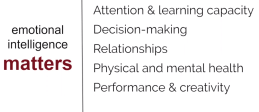The 2020 BREI Conference took place during the week of June 15, 2020 and featured a variety of presenters from across North America. Academics and practitioners presented on emerging BR+E practices and guided discussions centered around the role of BR+E as an economic recovery tool. Below are 8 key takeaways from the conference:
- Business attraction might have to take a back seat for the foreseeable future. Economic development will become more centered around BR+E as communities chart their paths to economic recovery.
 Communities might have to develop a triaging process to determine when and how to assist struggling companies. Given the importance of being effective and timely when addressing business issues, it can be important to ask; “which businesses can be saved?”
Communities might have to develop a triaging process to determine when and how to assist struggling companies. Given the importance of being effective and timely when addressing business issues, it can be important to ask; “which businesses can be saved?”- Build awareness that a local business support ecosystem exists. Sometimes all that is needed to assist a business owner is to point them in the right direction by informing them of suitable support options (e.g., locally-focused workshops).
 It is important to have clear deliverables and a unified economic recovery task force. Additionally, always bring focus back to the desired outcomes and be willing to adjust economic recovery plans as needed.
It is important to have clear deliverables and a unified economic recovery task force. Additionally, always bring focus back to the desired outcomes and be willing to adjust economic recovery plans as needed.- Be prepared to incorporate new BR+E partners. In addition to traditional stakeholders such as business support centers and local chambers of commerce, examples of new partners to consider include; local public health departments and mental health organizations or experts.
- Adapt the BR+E process accordingly. For instance, if business interviews are typically completed in-person, perhaps there is an opportunity to shift to phone calls with follow-up discussions via video call.
 Focus on business needs over data collection needs. Inasmuch as it is still vital to have a robust data set to guide the BR+E activities, it is equally important to keep survey fatigue in mind. Consider the option to use a minimal number of survey questions or be prepared to stray from a rigid Q&A format when interacting with business owners.
Focus on business needs over data collection needs. Inasmuch as it is still vital to have a robust data set to guide the BR+E activities, it is equally important to keep survey fatigue in mind. Consider the option to use a minimal number of survey questions or be prepared to stray from a rigid Q&A format when interacting with business owners.- Given the challenges facing business owners, be familiar with mental health resources and best practices prior to engaging them in discussion. Do not stigmatize and be prepared to have a conversation – sometimes it can be as straightforward as asking “Do you need any extra support through this?” and following up with a connection to a mental health counselor or other professional.

For more resources on mental health considerations for BR+E, visit the links below from University of Minnesota Extension:
- Reaching out to business in a sensitive time
- Practicing emotional intelligence during a community crisis experience
BREI is the leading professional association for business retention and expansion. In addition to training economic developers through a variety of workshops and conferences, the association seeks to increase collaboration among professionals by promoting interdisciplinary development and networking.
Click here to read our previous post on how BR+E can be used to guide economic recovery. Stay tuned for an upcoming post on how to adapt your BR+E during a crisis.


Leave a Reply